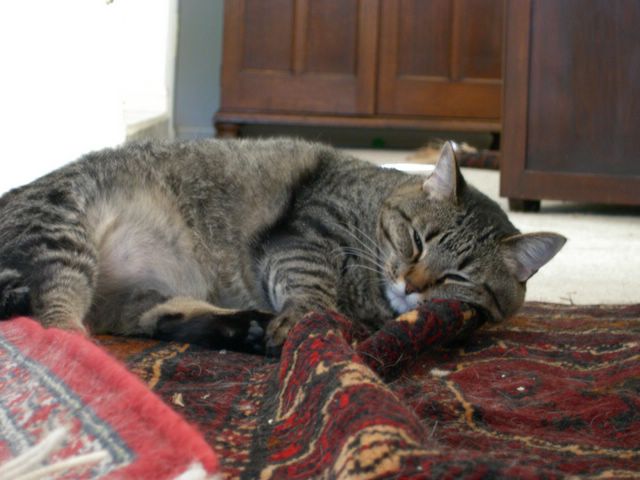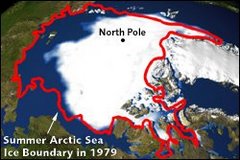Hurricane harvest from global warming: further claims
Yet another leading British scientist, this time it is Sir John Lawton, chairman of the Royal Commission on Environmental Pollution, is claiming evidence for global warming increasing the frequency of severe hurrincanes:
Super-powerful hurricanes now hitting the United States are the "smoking gun" of global warming, one of Britain's leading scientists believes.He is not shy about speaking his mind about environmental politics either:
The growing violence of storms such as Katrina, which wrecked New Orleans, and Rita, now threatening Texas, is very probably caused by climate change, said Sir John Lawton, chairman of the Royal Commission on Environmental Pollution. Hurricanes were getting more intense, just as computer models predicted they would, because of the rising temperature of the sea, he said. "The increased intensity of these kinds of extreme storms is very likely to be due to global warming."
Sir John hit out at neoconservatives in the US who still deny the reality of climate change.
Referring to the arrival of Hurricane Rita he said: "If this makes the climate loonies in the States realise we've got a problem, some good will come out of a truly awful situation."
Asked what conclusion the Bush administration should draw from two hurricanes of such high intensity hitting the US in quick succession, Sir John said: "If what looks like is going to be a horrible mess causes the extreme sceptics about climate change in the US to reconsider their opinion, that would be an extremely valuable outcome."
Asked about characterising them as "loonies", he said: "There are a group of people in various parts of the world ... who simply don't want to accept human activities can change climate and are changing the climate."
"I'd liken them to the people who denied that smoking causes lung cancer."
With his comments, Sir John becomes the third of the leaders of Britain's scientific establishment to attack the US over the Bush government's determination to cast doubt on global warming as a real phenomenon.
Sir John's comments follow and support recent research, much of it from America itself, showing that hurricanes are getting more violent and suggesting climate change is the cause.
A paper by US researchers, last week in the US journal Science, showed that storms of the intensity of Hurricane Katrina have become almost twice as common in the past 35 years.
Although the overall frequency of tropical storms worldwide has remained broadly level since 1970, the number of extreme category 4 and 5 events has sharply risen. In the 1970s, there was an average of about 10 category 4 and 5 hurricanes per year but, since 1990, they have nearly doubled to an average of about 18 a year. During the same period, sea surface temperatures, among the key drivers of hurricane intensity, have increased by an average of 0.5C (0.9F).
Sir John said: "Increasingly it looks like a smoking gun. It's a fair conclusion to draw that global warming, caused to a substantial extent by people, is driving increased sea surface temperatures and increasing the violence of hurricanes."


